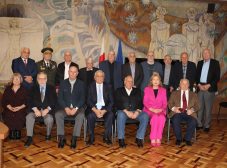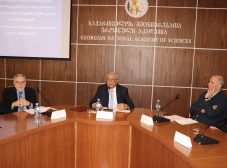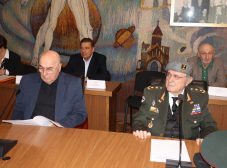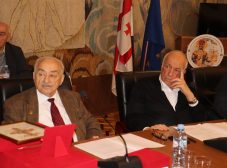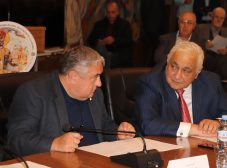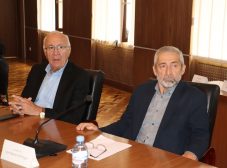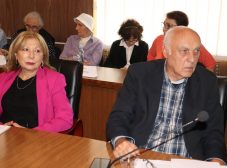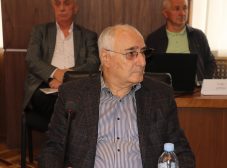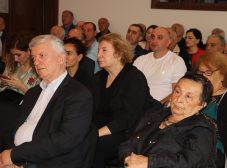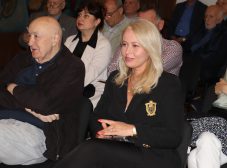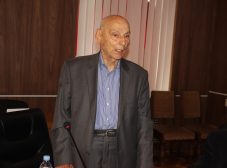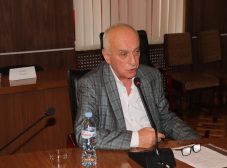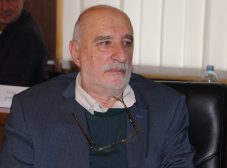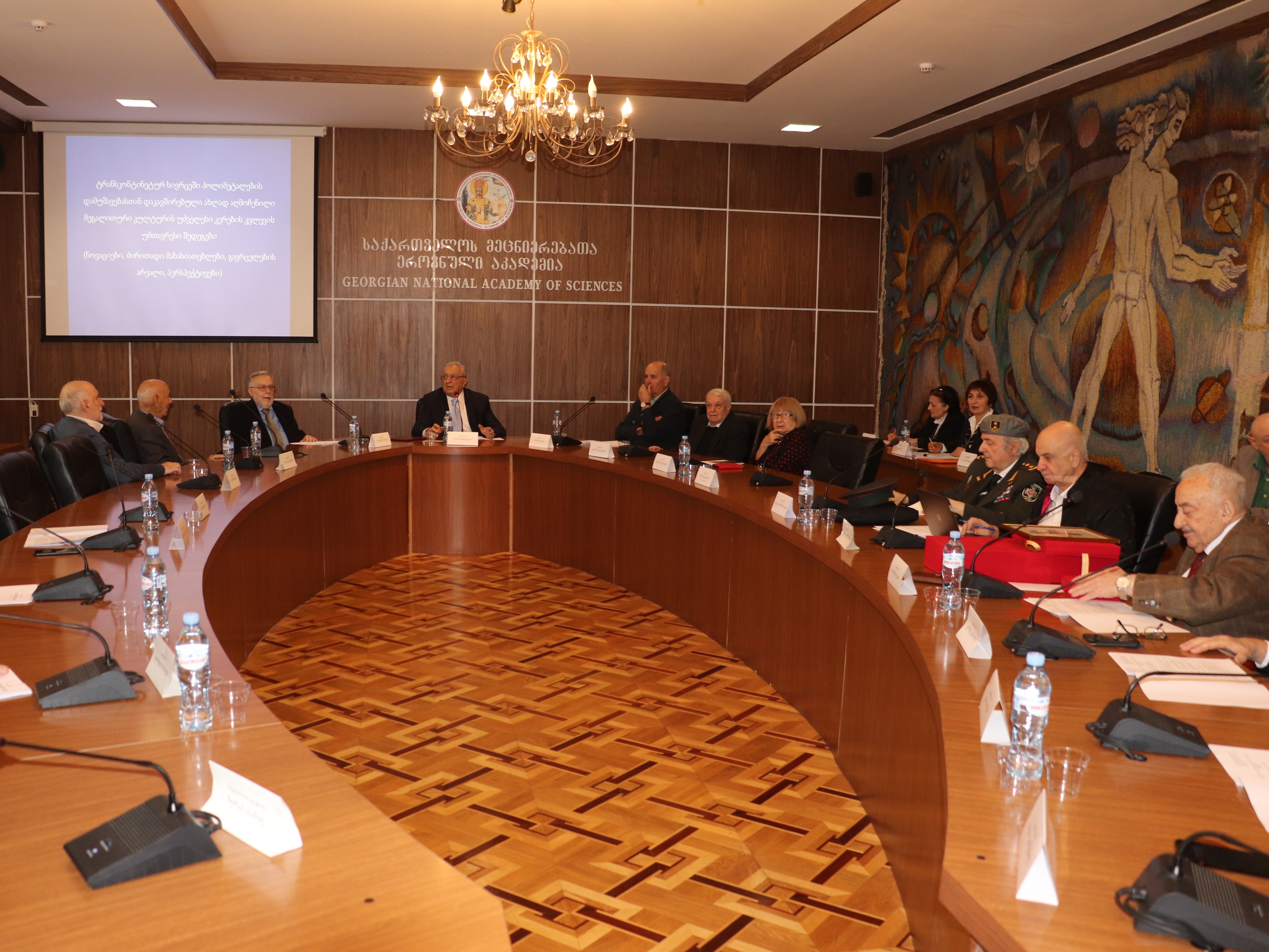
Presidium Meeting
- October 8, 2023
On October 4, 2023, the Presidium meeting was held at the National Academy of Sciences of Georgia. Doctor of HistoryAmiran Kakhidze delivered a report entitled “The main results of the study of the ancient centers of the newly discovered megalithic culture associated with the metallurgy of polymetals in the transcontinental space (innovations, main characteristics, distribution area, prospects).” He noted that the Batumi Archaeological Museum conducts very fruitful archaeological field work to study the history and culture of our country. This is especially true for the most important innovative discoveries of recent years (2014-2023). In the transcontinental space associated with the transitional eras from the Stone Age to the Metal Age, the specimens of a completely new type of megalithic culture have deen discovered. The civilization discovered by the expeditions of the Batumi Archaeological Museum is not a local phenomenon. According to preliminary exploration works, it is clear that the whole of Georgia is covered with monuments of a similar megalithic culture. The same can be said about neighboring Turkey – thanks to reconnaissance work, a number of monuments have already been traced from Murgul-Artvin-Borchha to Samsun-Amasia-Tokati (so far we have been able to view these places). Using the most recent research techniques, such as farming and animal husbandry, Eurasia, Australia, Africa, and America are classified as megaculture zones. The most recent information makes it abundantly clear that our creative ancestors made a substantial contribution to the history of the development of polymetallic metallurgy.
At the Presidium meeting, Academician Ramaz Shengelia, the commission’s scientific secretary, presented presented an overview of the commission’s research into the gene pool of the Georgian population (Caucasus). He stated that one of the most recent and rapidly expanding scientific fields in the world is population genetics, which is a subfield of paleogenetics known as archaeogenetics. The study of history, archaeology, linguistics, ethnography, and other humanities fields nowadays is practically impossible without genetic and paleogenetic data on populations. This new science is a potent instrument for reconsidering the history of peoples.

